Key takeaways – CEE, SEE & Baltics Summit 2025, London
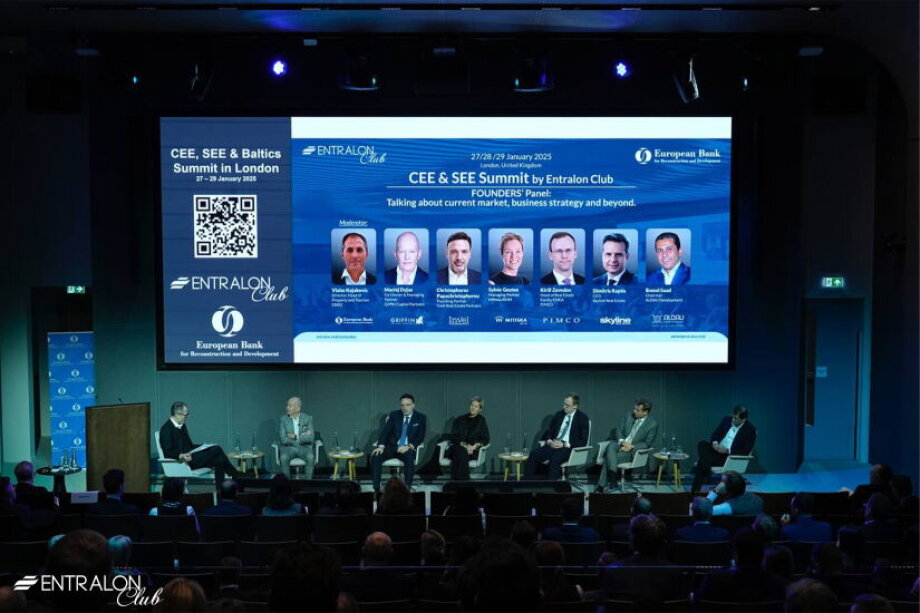

Reflecting on three monumental days of the second annual CEE, SEE & Baltics Summit 2025 in the business heart of London, Canary Wharf, organized by Entralon Club (in partnership with EBRD). 175 top industry professionals from 21 countries came together to discuss the latest trends and risks shaping real estate across the mentioned markets and beyond.
Overview:
From Macroeconomic Outlook 2025, it is clear that EBRD regions, including CEE, SEE & Baltics, continue to present unique opportunities for investors, developers, and lenders. However, one has to recognize challenges and trends of the preceding year which will influence the decision-making. This includes a boom in Central Asia and the Caucasus related to intermediate trade and immigration from Russia translated into real wage increases well above pre-COVID trends. We face increasing interest rate bills, as governments have experienced ‘surprise inflation’. The key considerations include higher US Import tariffs across the board which can potentially lead to a stronger US Dollar. In addition, the currencies in the EBRD regions have generally weakened against the US Dollar since the last US election. It is worth noting that new opportunities appear for connector economies due to the strong reorientation of US outward FDI, contraction with China, and expansion with India.
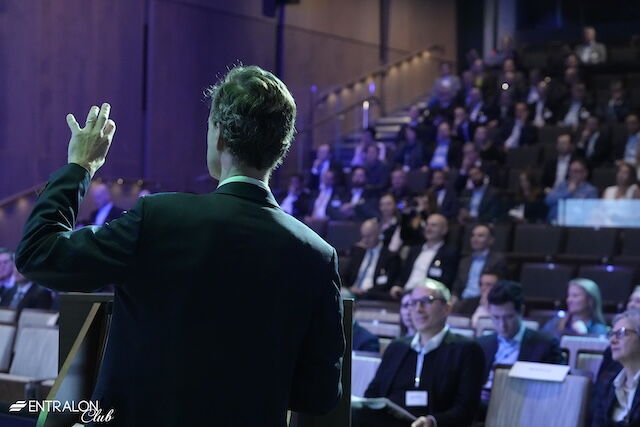
A Housing and Home Ownership Outlook 2025 shows that large multi-apartment buildings are less common in Germany, Emerging Europe, and Turkey. Surprisingly, home-ownership is more unrelated to income in EBRD regions, unlike in Germany. Finally, a lack of green spaces is emerging in EBRD Regions, especially for the lower-income population.
Investment & Capital Panel: What/Where/How?
The meeting discussed the evolving European real estate market post-COVID-19, highlighting significant investments in CEE. As a main point, there was noted a shift in valuations and capital allocation, with CEE attracting 4-6% of total European investment. The increased trend in investment in CEE is expected to continue in 2025. The discussion emphasized exploring opportunities to attract more domestic institutional capital in the CEE region. There is a need for investors to focus on net operating income rather than leveraging assets.
It was noted to continue monitoring the development of the Czech Real Estate market and capital flows as a potential model for Poland. This trend is further supported by the shift in investor interest from Opportunistic to Core Capital in CEE, with Poland still repricing compared to its neighbors. The conversation also covered the progress of introducing REIT structures in Poland, the emergence of local capital, and the challenges of ESG integration. The uncertainty in predicting investor preferences for green credentials emphasizes a balance between performance and ESG. The overall sentiment was optimistic, with a focus on market maturity and the need for regulatory support.

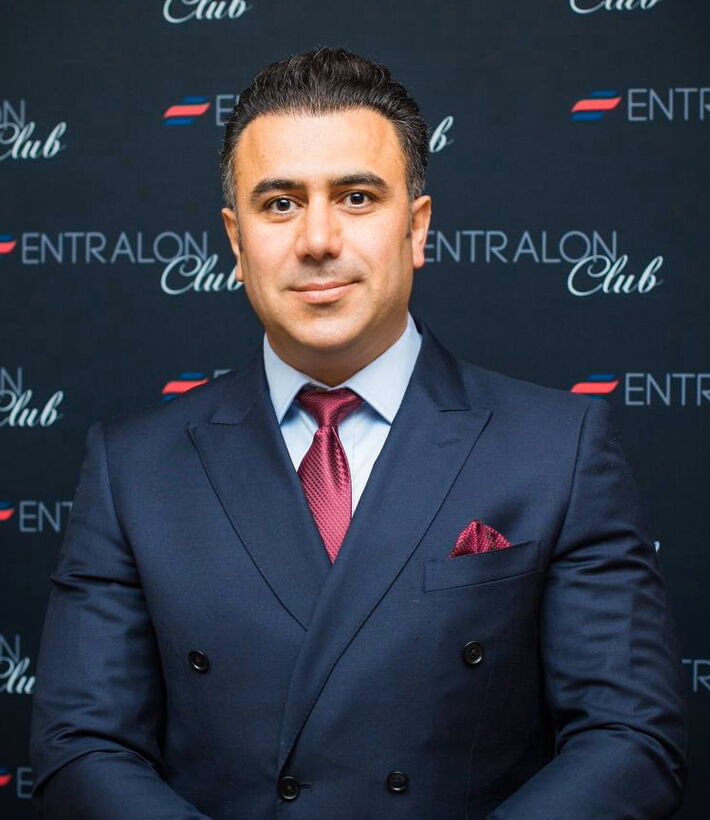
Logistics: All In or All Out?
The panel discussion examined the evolving logistics and industrial real estate landscape in Central Europe, focusing on power demand challenges, reshoring trends, and decarbonization strategies. Speakers highlighted the increasing strain on Europe’s aging infrastructure due to rising power needs, emphasizing the urgency for modernization. Supply chain disruptions from events like COVID-19 along with tariffs affecting Chinese EV manufacturers, have accelerated reshoring efforts, particularly in the automotive sector. Companies such as ‘IKEA’ and ‘Tesco’ are seeking localized supply solutions, while logistics giants like ‘DHL’ are investing in alternative fuels and energy-efficient buildings to meet decarbonization goals. Despite economic disparities influencing national decarbonization responses, the logistics industry is shifting toward long-term sustainability strategies that extend beyond green certifications.
Germany’s economic slowdown has reshaped regional investment trends, with manufacturers moving to CEE, particularly Poland, which has outperformed other markets in attracting foreign capital. While shorter lease commitments remain a challenge compared to Western Europe, investors see opportunities in undervalued assets. Occupiers are increasingly favoring modern, ESG-compliant facilities, leading to longer lease commitments and boosting demand in key logistics hubs like Gdynia and Gdansk. Overall, the discussion underscored CEE’s rising importance as a logistics and manufacturing hub amid geopolitical shifts, economic transitions, and sustainability imperatives.
AI & Digitization in RE: Ready, Steady, Go! ... Or No Go?
The panel discussion explored the role of AI in real estate, focusing on data transparency, efficiency, and decision-making improvements. Speakers discussed how AI tools help process vast amounts of data, offering insights on supply costs, developer trends, and investment opportunities. The conversation highlighted challenges in data collection, particularly in CEE, where transparency is limited due to cultural and regulatory reluctance. AI presents an opportunity to standardize data access, improve market efficiency, and enhance real estate valuation by reducing reliance on gut-driven decisions.
The discussion also covered AI's potential risks and limitations. Companies experimenting with AI-powered decision-making tools, such as ‘Microsoft’s Co-Pilot’ and AI-generated reports, have encountered mixed results, as data accuracy and system limitations remain concerns. While AI can streamline processes like predictive maintenance and lead generation, only about 20% of AI-driven innovations are fully adopted due to resistance from employees and customers. The need for Chief Data Officers (CDOs) to oversee AI integration was emphasized, along with challenges related to regulation, cybersecurity, and generative AI biases. Concerns about AI’s environmental impact, data privacy, and misinformation were also raised, highlighting the need for responsible implementation. Ultimately, the panel underscored AI’s potential to revolutionize real estate but emphasized that strategic oversight and cultural adaptation are crucial for widespread adoption.
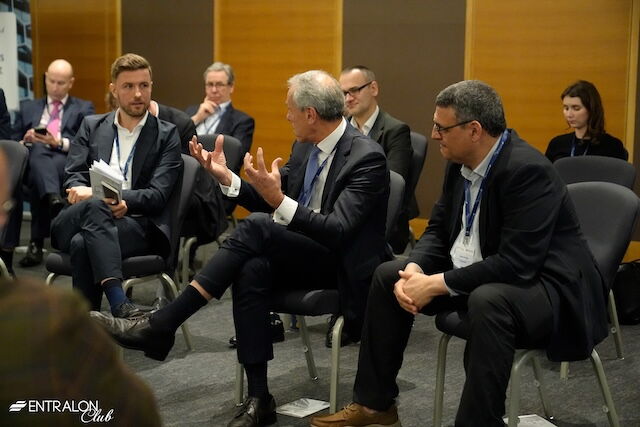
Living Sectors: New Rising Star?
The panel discussion focused on the growth and challenges in the Private Rented Sector (PRS) and student housing markets, particularly in Eastern Europe. Speakers highlighted the strong demand for rental housing, driven by increasing student populations and limited supply. The panelists noted that student housing is becoming a more attractive investment due to rising international student numbers and improving affordability. However, they acknowledged significant challenges, such as higher development costs, operational complexities, and regulatory barriers that impact institutional investment. Additionally, they discussed the impact of interest rates and capital costs on the sector, emphasizing the need for long-term financing solutions.
To address affordability and supply issues, the panel explored innovative strategies, including repurposing office buildings into student housing, leveraging government incentives, and adopting cost-saving construction technologies like modular building methods. Institutional investors are showing a growing interest in PRS and student housing, particularly in key European markets like Poland, where demand is rising. The discussion also touched on broader market trends, such as the potential for mergers and acquisitions, as well as the need for policy reforms to encourage investment. Finally, the panelists highlighted the importance of collaboration between developers, universities, and policymakers to create sustainable, affordable housing solutions.
ESG & Sustainability: Walk the Talk Please!
The panel discussion on ESG sustainability in real estate highlighted the evolving landscape of sustainability regulations and investment strategies. Speakers discussed how ESG is becoming an integral part of the real estate development. New regulations, particularly in the US and EU, are pushing for increased transparency, energy efficiency, and net-zero targets, with major banks and institutional investors aligning with sustainability goals. The panel emphasized that ESG is not just a compliance cost but a value-creation strategy that enhances long-term asset performance. Examples were shared of innovative approaches, such as utilizing nearby renewable energy sources and repurposing existing buildings to align with sustainability objectives.
Challenges such as the financial feasibility of retrofitting older buildings, data transparency, and stakeholder engagement were also key topics. While ESG regulations impose stricter compliance, they present opportunities for companies to innovate, enhance tenant engagement, and improve long-term asset value. The panelists stressed the importance of incorporating sustainability early in the development process, maintaining open communication with stakeholders, and integrating ESG data into decision-making. Ultimately, the discussion underscored that ESG is not just a regulatory obligation but a transformative approach shaping the future of real estate.
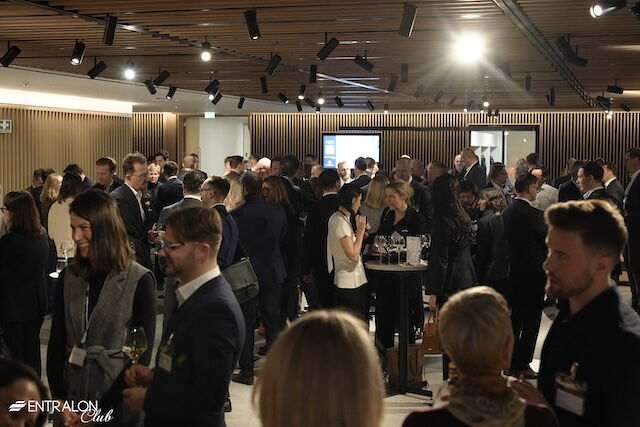
Financing CRE: 50 Shades of Green and Beyond!
The panel discussion on financing highlighted the growing importance of green buildings and sustainability in real estate investment. Panelists emphasized that energy efficiency and sustainability certifications are becoming essential for securing financing, with investors and banks prioritizing green assets. Over the past five years, green financing has grown significantly, with €5 billion invested in green buildings, and most real estate transactions now requiring green certifications. The discussion also addressed the challenges of financing older buildings, as many are not currently eligible for funding despite their potential for refurbishment. Panelists stressed the need for a more practical and balanced approach to ESG financing, particularly in CEE, where many properties require upgrades rather than new developments. Additionally, banks are increasingly required to report on their own emissions and energy usage, influencing their lending strategies and making green financing a key focus area.
From a banking perspective, financing green buildings is now tied to favorable loan terms, as institutions recognize the long-term value of sustainability. The panel discussed how financial regulations, such as the EU taxonomy, are shaping lending decisions, making it easier for green projects to access capital while posing challenges for non-compliant assets. Additionally, regional differences in financing structures were explored, such as Austria’s additional capital requirements and Hungary’s 15-year loan repayment capital. Overall, the discussion underscored that financing is shifting toward sustainability, with banks and investors aligning their strategies to support green development and refurbishment.
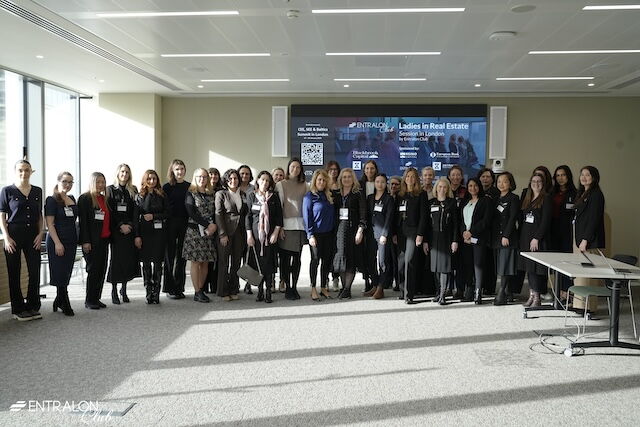
Trends and Blends in CRE 2025:
The panel explored key trends shaping commercial real estate (CRE) in 2025, emphasizing the rise of mixed-use developments and the concept of "hotelization" to enhance property value and attract tenants. Panelists discussed the growing role of big investors, ownership structures across Europe, and the need for adaptive office strategies to bring employees back to physical workspaces. The discussion also covered the importance of ESG initiatives, the influence of local market knowledge on managing global brands, and the impact of evolving work trends on office demand.
Geopolitical and economic factors were also a major focus, with panelists examining how global events, including the Ukraine conflict and shifting U.S. investments, affect CRE markets, particularly in Poland. Regulatory challenges, inflation, and technological disruptions like AI and crypto were also debated for their potential to reshape real estate investment. The conversation highlighted the importance of liquidity in office markets, green financing, and innovative tenant engagement strategies to ensure long-term sustainability and profitability in the sector.
Retail: Rise of the Phoenix?
The panel discussion focused on the resilience and evolving strategies of retail investment in Europe, particularly in Central and Eastern Europe (CEE). Despite challenges such as inflation and geopolitical instability, sectors like grocery retail and retail parks have remained strong, driven by stable turnover and growing consumer purchasing power. E-commerce penetration in CEE is lower than in Western Europe, with shopping still viewed as a leisure activity, leading to continued demand for physical retail spaces. The discussion also highlighted the importance of convenience in retail, the integration of logistics into retail spaces, and the growing role of omnichannel strategies in balancing online and in-store shopping experiences.
Investment strategies centered on adapting to market shifts, diversifying retail offerings, and attracting institutional capital. The panel explored the potential for new shopping centers in CEE, given the region’s lower retail supply compared to Western Europe. Experts emphasized the need for local market knowledge, tenant mix optimisation, and repositioning of assets to maintain profitability. Overall, the outlook for retail investment remained optimistic, with expectations of continued growth, increased liquidity, and evolving retail formats to meet consumer needs.
Wrap-up Session: What’s next?
The Wrap-up Session discussion covered key investment takeaways that participants can bring home. Participants emphasised the importance of local capital for infrastructure and residential sector growth. The geopolitical and economic climate was debated, with insights on shifting global trade dynamics, the relocation due to U.S.-China tensions, and the strategic significance of CEE ports. The role of AI in commercial real estate, from automated valuations to preventative maintenance, was also explored, with a focus on increasing transparency and reducing innovation fatigue. ESG remained a dominant theme, with participants stressing the need for pragmatic sustainability measures and the challenges of extensive reporting requirements.
The residential and student housing sectors were discussed as emerging asset classes requiring structured operational models and institutional investment. Participants highlighted the growing demand for purpose-built student accommodations. Logistics and infrastructure investment were identified as critical areas, with ports like Gdansk gaining prominence. The session concluded with reflections on long-term real estate strategies, emphasizing patience, adaptability, and the integration of new technologies and sustainable practices.
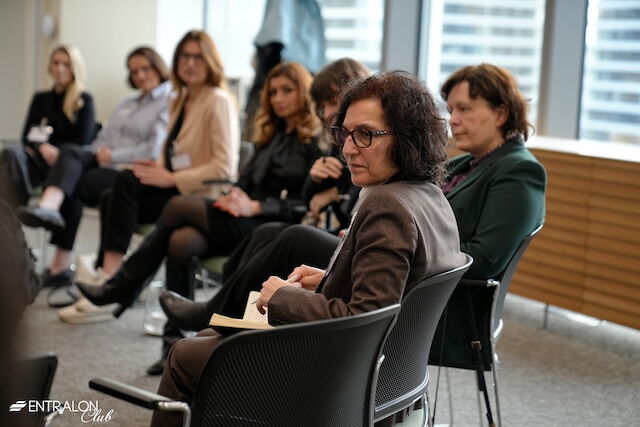
Ladies RE: tools we do not use yet/enough:
The Ladies in Real Estate Panel focused on empowering women in business through technology and networking strategies. A key discussion point was the importance of maintaining a strong LinkedIn presence, as women are statistically less likely to build professional networks than men. Speakers highlighted AI's potential, urging women to adopt AI tools to remain competitive in the evolving job market. Participants shared personal experiences using AI for efficiency, such as note-taking and email automation, and discussed ways to support each other better professionally. The panel also explored the need for mentorship and advocacy, encouraging women to actively promote each other’s successes and engage in digital platforms to increase visibility and opportunity.
About Entralon Group
Entralon Group is a London-based REAL ESTATE brand founded by Dr. Farid Bagheri in January 2020. The company has three main activities in the real estate industry:
1. Entralon.com is our award-winning international prop-tech project - largest listing platform specialized in new-build residential assets with AI features, smart search and data harvesting machine;
2. Entralon Capital is the development wing of Entralon Group which has successfully designed, completed, leased and sold in 2024 a £10+ mln GDV logistics asset in the UK;
3. Entralon Club founded by Svetlana Fodosova, is our high-quality and top-seniority networking platform, organizing international investment-focused events.
Special thanks to our 2025 partners and sponsors;
Lead Partner: EBRD
Partners: JWA , ZEITGEIST Asset Management, ALDAU Development, REDD, ZEITRAUM Student Housing, Solida Capital, Innova Capital
Sponsors: Invesco Real Estate, Biggeorge Property, W. P. Carey, MDC2, ENTRALON, REINO Partners
International Media and Industry Partners: EuropaProperty.com, Warsaw Business Journal, Europe Real Estate (REP), WWIRE World Women in Real Estate, ITKeyMedia, RICS
For early bookings for CEE summit 2026, email at: admin@entralon.club
Website: entralon.club/ceelondon